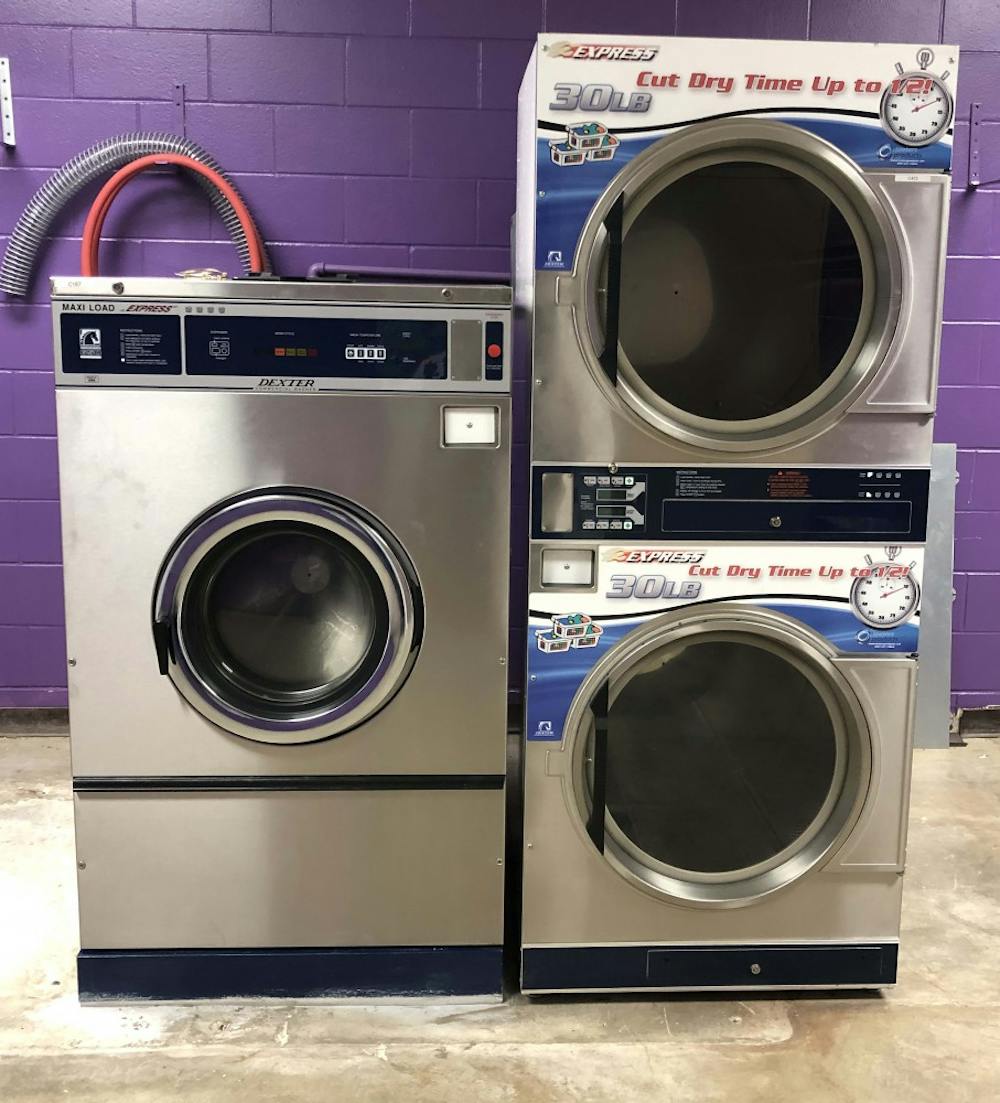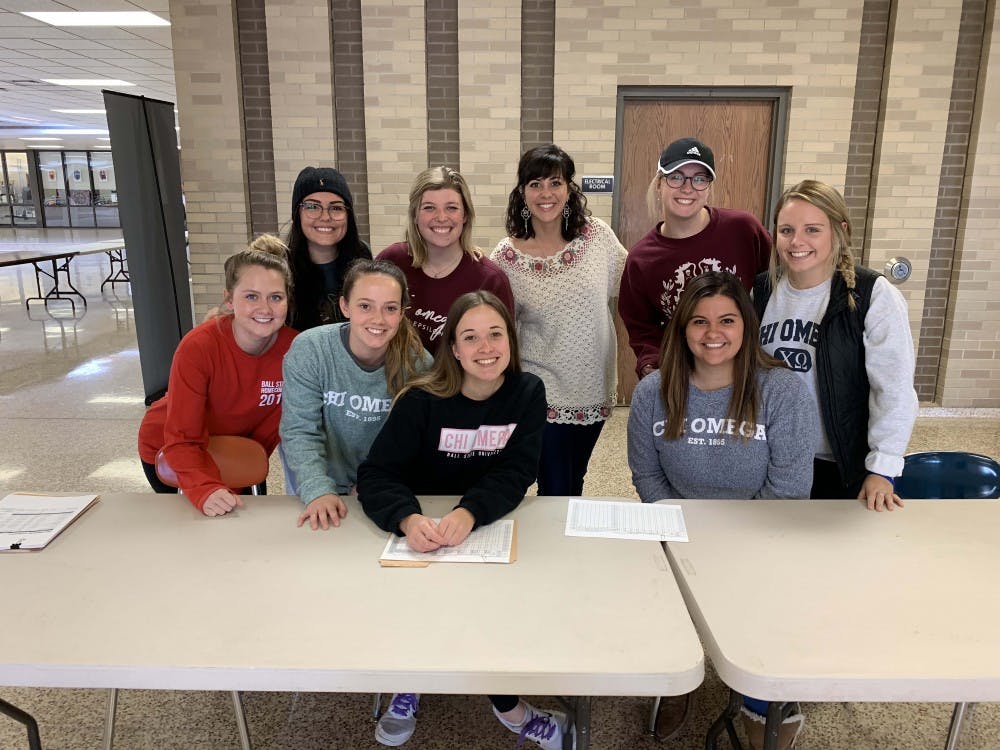It started with a simple goal: to provide an after school food pantry for students at Muncie Central High School, MCHS.
Now, after one semester and many donations, it has become an anonymous food pantry for students and community members, a “clothing bank” to give students nicer donated clothes to wear and a free laundry program to wash their clothes.
The 60-lb. washing machine and two 30-lb. dryers would cost an estimated $10,000.The school soon received a $2,500 IU Health Ball Memorial Health Foundation grant and planned to apply for more.

After RTV6 ran a story about MCHS wanting to start the program, however, donations began pouring in. Soon the school had raised all the money necessary to buy the machine and supplies from community members and one Indianapolis native who they believe had no connection to the school but who donated anyway. Ball State’s own Phi Gamma Delta fraternity gave $1,700.
“Our goal was to be funded and start next year, but we were funded before [first semester] ended,” Jones said.
Assistant Principal Justin Oliver said the large machines can wash and dry three average loads of students’ clothes at a time. The laundry itself is done by students in applied special educations classes — known in other schools as self-contained classes — who learn job skills for the future as part of their degrees.
The next program school administration implemented was for students who needed not only clean clothes but new ones. MCHS Associate Principal Kenna Jones said an email sent asking for swim trunks for one student was met with an overwhelming response from people willing to help.
“So we thought ‘If we have the food pantry, I wonder if people … would help us provide clothes for our students,’” Jones said.
The administration’s “first worry” was that there would be a stigma for students who use these services. The back-to-school food drive backpacks and laundry duffle bags feature MCHS’s logo in purple and grey, meaning they blend in with other school spirit and athletic gear. Jones said students are told about and participate in these programs confidentially and only staff and adults are allowed to volunteer with them so as not to embarrass students.

Jones says that there are “underlying needs” administrators have to fulfill for students before they are able to properly focus on learning.
“It was a way to help break down the educational barriers by providing students with one more thing here that could make them feel a little more success,” she said. “To be able to come into a learning environment with one less stress.”
Contact Madison Freestone with comments at mkfreestone@bsu.edu or on Twitter @MKFreestone.





